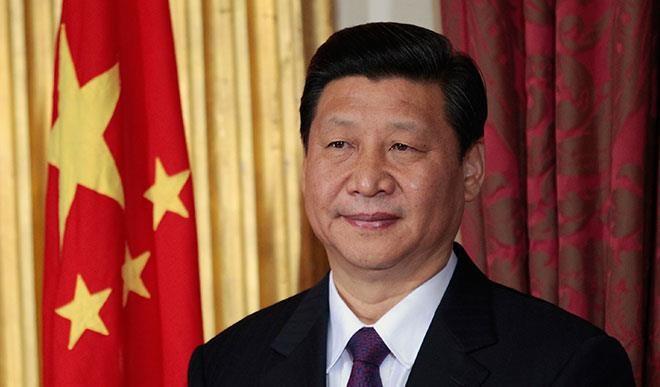High tech: China protecting its own
In today’s world, China has a lot to leverage: well over a billion people, burgeoning middle class, emerging high tech companies, a significant number of highly educated Chinese-born immigrants in the U.S., and, perhaps the most important, the vision of the Chinese government to put its country first in matters of technology development. As a […]


In today’s world, China has a lot to leverage: well over a billion people, burgeoning middle class, emerging high tech companies, a significant number of highly educated Chinese-born immigrants in the U.S., and, perhaps the most important, the vision of the Chinese government to put its country first in matters of technology development.
As a foreign high tech company in China, you’ll take a back seat – or most likely, go back to where you come from! If in doubt, just ask Google, Microsoft, Amazon, Facebook, Cisco, or other international tech “juggernauts,” who have earnestly tried to play in China. These outfits are the best of the best in the world in terms of innovation. However, they aren’t faring well in China – a tribute to the country’s apparent protectionist disposition.
How are the policies manifested? Farhad Manjoo in his 1 August 2016 article in New York Times puts it this way: “Plagued by opaque and ever-shifting (Chinese) regulations and a culturally abstruse way of doing business, American companies fell to a series of local giants. Instead of Google, Baidu. Instead of Facebook, WeChat, owned by the giant Tencent. And instead of Amazon, Alibaba.” He also added that “companies that traffic in information, like Google, Facebook and Twitter, were essentially stymied from the start by the Chinese censorship regime.” Paul Mozur noted that “Facebook and Google are among those blocked by China’s web filters from offering their core services in the country, which is the world’s biggest Internet market.” Eight-year old annual meetings between Chinese government officers and American high tech companies have not improved anything – only more rhetoric, promises, a lot of vision, but “no beef!”
Uber, the taxi-hailing business, is the latest casualty: less than two weeks ago the company sold its gains in China to Didi, the Chinese rival, and is heading back home. That was after investing $2 billion into its Chinese outfit – Uber China. Manjoo also notes that “of all American tech firms, Apple has achieved the biggest success in China – about 25 percent of its ($50 billion) sales occurred in China, Hong Kong and Taiwan in 2015. But in recent months, it, too, has been running into political hurdles in the region.”
Cultural factors do play an important role in what we are seeing in China; as there seems to be no real democracy and openness in any Asian market – Japan, South Korea, Singapore, Hong Kong, Taiwan, you name it – when compared to the way business is done in the U.S. It is also tempting to interpret China’s apparent protectionist moves in terms of retaliation for the way U.S. treats a few Chinese companies – with suspicion fuelled by the belief that they are being used as vehicles to spy for the Chinese government. No Chinese company has been more spotlighted in this regard than Huawei, who, in early December of 2013 decided to end its operations in North America, in order to “ease the tensions between China and the U.S. and the accusations made by U.S. lawmakers that Huawei is somehow tied to Chinese government intelligence.”
From America’s perspective, the image of China as a country whose intelligence agencies are implicated in the stealing of intellectual property (IP) from the United States is vividly narrated in the 19-25 March 2012 issue of Bloomberg BusinessWeek. The article provides, in the words of the magazine, “a compendium of intellectual thievery,” by way of numerous specific instances where Chinese nationals and Chinese-Americans have stolen critical competition-sensitive materials from their employers in the U.S. and sent them to China. International corporate giants (such as Apple, Boeing/Rockwell International, Chicago Mercantile Exchange, Dow Chemical, Dupont, Ford Motor, General Motors, Goodyear Tire and Rubber, L-3 Communications, Motorola, Northrup-Grumman Aerospace, and Paragon Power) have been identified as victims of Chinese thievery. However, the Chinese government has routinely denied any involvements in the stealing of U.S. companies’ IPs or trade or process secrets.
To buttress its own position on the issues, the Obama administration, in the middle of 2014, obtained what it considered to be beyond-the-shadow-of-a-doubt, caught-red-handed, information, including the photographs of real Chinese people and their aliases, to back up the U.S. government’s protracted claim of Chinese-government-sponsored stealing of the secrets and IPs of U.S. companies. The five shamed Chinese officers, whose photos appear all over the Internet, were alleged to be members of the Shanghai-based Chinese military’s Computer Espionage Unit 61398, also known as the “Comment Crew.”
However you see the fate of American high tech companies in China, the status quo is actually not all the way favourable to the Chinese high tech companies either. True, the Chinese government’s regulations help keep off competition from capable companies in the West, thereby empowering the locals to keep the world’s leading Internet market to themselves. However, it remains the case that most of the tech innovations occur outside of China, and the opportunity for Chinese companies to be part of this is weakened by the regulations.
